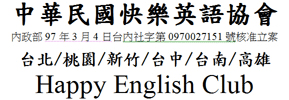join
1 group/organization
[transitive] to become a member of an organization, society, or group:
I want to join the Happy English Club. (Hah....)
When did you join the Labour party?
I decided to join the army.
You can enjoy a sport without joining a club or belonging to a team.
2 activity
[transitive] to begin to take part in an activity that other people are involved in:
I want to join all the activities of Happy English Club. (Haha..)
Many sacrificed their weekend to join the hunt for the missing girl.
the benefits of joining our pension scheme
Church leaders have joined the campaign to end fox-hunting.
3 go to somebody
[transitive] to go somewhere in order to be with someone or do something with them:
I am going to join the members at the next meeting of Happy English Club. (Hahaha...)
She joined her aunt in the sitting room.
The immigrants were soon joined by their wives and children.
! Do not say 'join with' someone. Join is followed by a direct object: Will you join me?
4 do something together
[intransitive and transitive] to do something together with someone else, or as a group
I want to join the members of Happy English Club to practice English conversation!~
join somebody for something
I invited them to join us for a glass of wine.
join (with) somebody in doing something
I'm sure you'll all join me in thanking today's speaker.
join (with) somebody to do something
Parents have joined with health experts to produce a video for bereaved families.
join together
Three police forces have joined together to buy a helicopter.
attend
1 [intransitive and transitive] to go to an event such as a meeting or a class:
I'd like to attend the next meeting of Happy English Club!~
Only 12 people attended the meeting.
Please let us know if you are unable to attend.
2 [intransitive and transitive] to go regularly to a school, church etc:
I am the first child in my family to attend college.
-- Adapted from LDOCE online: http://pewebdic2.cw.idm.fr/








